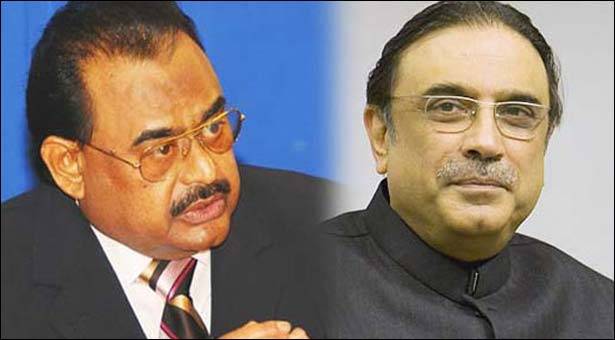In general, every political party has its own stronghold. And all of them have been restricted to their strongholds as is evident by the local government elections. Nonetheless, all of them – ethnic parties, nationalist parties, religious parties and regional parties – will play an important role on the chess board of politics in the next year or so. Leaving out any party or for that matter the factions within a party without obliging it with its fair share of the pie should not be an option. Keeping them within the fold is the key for an inward unity within a party and later a possible coalition out of the party.
Notably figureheads of almost every political party are the most important as far as vote bargaining and perk-negotiations are concerned. However, for them, keeping the factions within their parties together and saving them from forming a powerful group of the likeminded opportunists will be a work of art.
For People’s Party, its good position in the Senate and a considerable vote bank in the rural Sindh will make it politically relevant in the next general elections and thus in the making of the next Prime Minister of Pakistan.
But where does Bilawal Bhutto and Zardari stand in the next race towards the slot of Prime Minister? They did not field a candidate of their own in the election of national assembly speaker albeit having more national assembly seats (45) than the Pakistan-Tehreek-i-Insaf, which had lesser seats (33) and yet fielded their own candidate. What does it tell? Does PPP realize that they may not have a very good shot at having a Prime Minister of their own again and can only play the role of a kingmaker next time? Does it realize that the Oxford degree shall not help in politics in their case and Bilawal’s political stunts have been debunked out of Sindh? And that the cobble-together-a-coalition politics of the guru Asif Ali Zardari, which eclipsed the yesteryears’ ideological politics of People’s Party has led to a natural death of the party? Further that Punjab has been lost for good, jiyala myth busted and ship is sinking. Babar Sattar has already written about this sunken ship.
Everything granted, Pakistan People’s Party certainly cannot be completely written off (yet). For their own good, at least they have realized that wrongs have been committed and the displeased real jiyalas who have been sidelined by the Zardari and Co. have to be ‘contained’. PPP cannot afford another Badin. And it can also not afford its people jumping off their ship and settling in PTI.
PPP’s resurgence in Punjab and elsewhere is the only way, else Bilawal’s disregard towards Punjab in the recent local government elections will prove to be the last nail in the coffin. Besides Bilawal’s failed efforts for the revival of PPP in Punjab there is this rise of Aseefa Bhutto Zardari as well – but that does not serve the purpose, because neither Bilawal stands up to the charisma and appeal of his naana nor Aseefa up to her mother.
The final analysis of PPP shows that its hands will be tied and Bilawal Bhutto has to bring something fresh to the table. The title of ‘Prime Minister of Pakistan Bilawal Bhutto Zaradari’ and PPP’s resurgence as a party of all federating units is a far cry. At the very least, keeping the existing party together is need of the hour.
After PML-N, PPP and PTI comes the name of the Muttahida Qaumi Movement with twenty-four seats and Jamiat Ulema-e-Islam (F) with thirteen seats in the National Assembly currently. And down the line, there are Jamaat-e-Islami (4 seats) and Pakistan Muslim League Functional (5 seats) as well. Leaving aside their numerical strength, each of them represents a constituency and vote bank of their own and can thus exert a potential game-changing pressure.
For their own reasons, the regional parties have tried to be on the receiving end in the past by making alliances with the federal or provincial governments. After the local government elections, the regional parties have seen where they stand in the bigger scheme of things. And among the regional parties, MQM is set to be the strongest of all after getting its Mayor in Karachi.
Finally, the point to drive home is that the role of regional parties is no less than the kingmakers. The mainstream parties cannot afford to lose them. They realize that alienating the regional parties by going too hard on them through the ongoing operations under the pressure of the military establishment shall politically cost them in the long run. They have to be kept in the Parliament and in the pocket.
Note: This is the sequel to an earlier piece titled ‘Who will be the next Prime Minister of Pakistan?’, which discussed the standing of PTI and PML-N






